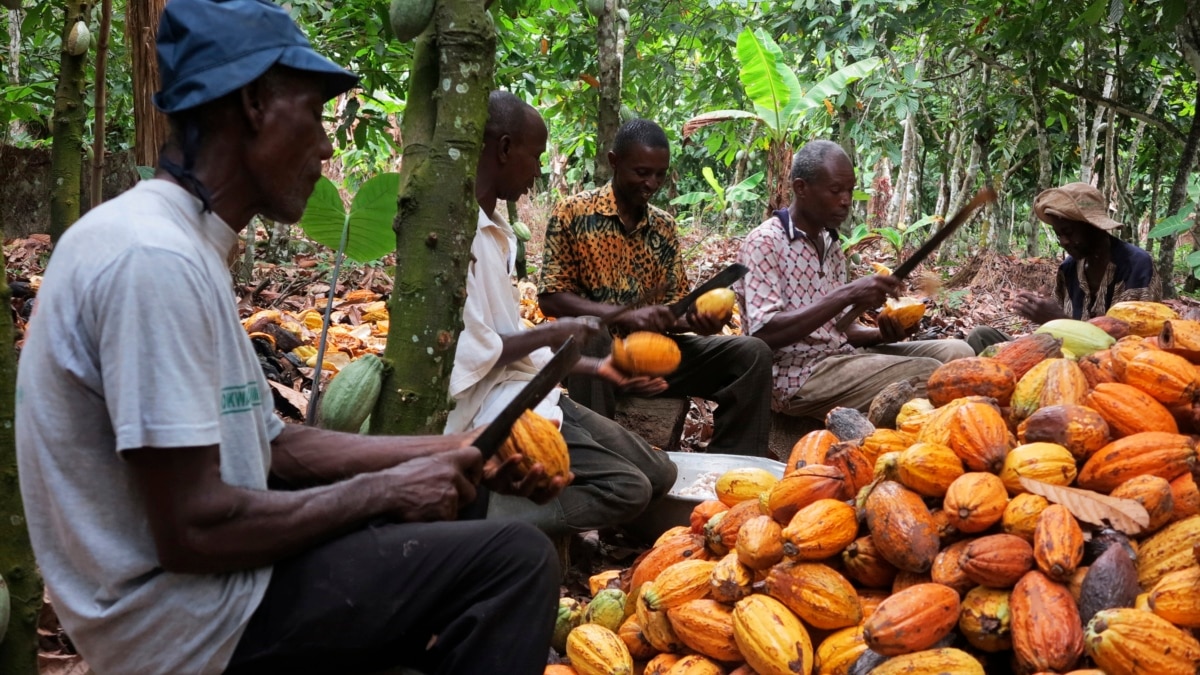The Ministry of Food and Agriculture (MoFA) has brought to the notice of the public that the agricultural sector of Ghana has witnessed a significant growth attributed to laid down initiatives by the country’s government.
According to Jeremy Agyemang, Head of the Agribusiness Unit at the Ministry, the growth of the sector has led to surpluses of food in the system.
“Government has always prioritized agriculture as it is reflected in all national sectoral development, policies, strategies and plans. Targeted government actions combined with the sector’s potential have ensured that its annual growth rate has consistently exceeded the target set at 6% from 2017 to 2021.”
Mr. Agyemang
Jeremy made this statement while speaking at a Roundtable Discussion organized by Mennonite Development Associates (MEDA).
Meanwhile, Government says it has consistently exceeded the set target of 6% for annual growth rate for the agricultural sector.
According to the Ministry of Food and Agriculture (MoFA), programmes such as: Planting of Food and Jobs, One District; One Factory, One District; One Warehouse have led to the annual growth of 6.3% for the past five years as compared to 2.7% in 2016.
“Since inception of the programme, the sector growth rate over the past five years averaged 6.3% as compared to the 2.7% in 2016.”
Mr. Agyemang
This, the Head of AgriBusiness at MoFA further said while explaining that the success of government’s action was obvious from the figures quoted.
The roundtable discussion on which Mr. Agyemang spoke was organized by the Mennonite Economic Development Associates (MEDA), in collaboration with the Canadian High Commission and the Ministry of Food and Agriculture.
Robert Austin, Country Director for MEDA opined that, forming strategic partnerships is fundamental to improving the agricultural sector, hence the roundtable discussion.

“MEDA has been in the development space for the last 10 years, carrying out project specific interventions. MEDA has also recently developed a new strategic plan, which calls for an effort to create sustainable decent jobs in agricultural sectors. Now, these ambitious objectives cannot be achieved by MEDA alone. We see very importantly, partnership, as critical to take this to scale.”
Mr. Austin
Also, on the discussion was the Senior Vice President of Programmes at MEDA, Derek Cameron, who disclosed that his outfit is supporting agriculture in Ghana because it has spotted its great potential of becoming the country’s huge employer.
“Our real focus in the organization is creating decent work. The agricultural sector is already a huge employer, both to processing and other secondary levels; back to the primary employment and self-employment on the farm.

“So, we see huge potential to help smallholder farmers to grow and expand their businesses since agriculture is a business, hence, also collaborating with the private sector in Ghana to help create decent jobs off and on the farm in the agricultural sector.”
Mr. Cameron
The Roundtable Discussion was based on the theme: ‘Investing in Agriculture for Employment in Ghana’.
Cocoa Farmers in Ghana complain about making losses
Cocoa farmers, belonging to the Ghana Civil Society Cocoa Platform (GCCP) in Ghana, complained about the high cost of farm inputs such as fertilizers, pesticides, transportation of beans and farm machinery as well as the cost of labor affecting cocoa production, which is causing them to lose huge sums of money.
According to the farmers, the country could lose more productive cocoa farms to illegal mining or palm production, if the farm gate price for cocoa beans is not increased to make up for the high cost of production.

“We call on the government to intervene to make farm inputs readily accessible and available to enable us increase our yields, as well as, make enough profits to cater for our families.”
Cocoa Farmers, GCCP
This clarion appeal came during the GCCP Annual General Meeting organized in Accra by SEND Ghana, with support from its German partner, INKOTA Netzwerk.
READ ALSO: TWN Africa Calls on African Countries to Harmonize Sectoral Policies and Implement Liberalization























